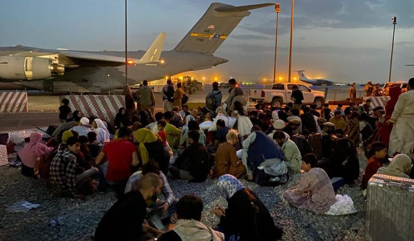Adisturbing custody battle in the United States, involving a 3½ year-old toddler, has brought to light the failure of the US to fairly account for the deaths of civilians during night raids on homes in Afghanistan, Human Rights Watch Asia director Patricia Gossman said.
According to her this custody case brings to light this largely ignored facet of the war in Afghanistan.
She said in a statement that over the last 20 years, Human Rights Watch has investigated similar raids and found that many were based on faulty intelligence or false presumptions.
Gossman said unlawful killings of civilians increased in 2018-2019 after US forces adopted a more “aggressive” approach to operations. A few months before the raid that orphaned the toddler, known in court documents as L, the United Nations reported a significant increase in civilian casualties during such raids, she stated.
Gossman said on September 5, 2019, US armed forces and Afghan allies carried out a night raid on a rural hamlet in southern Afghanistan. “What happened during the raid remains unclear, but when the shooting stopped, a man and woman and five of their six children were dead. Their 2-month-old baby girl was injured but survived.”
Afghan authorities turned over the baby to her Afghan cousin and his wife, consistent with Afghan and international law but in 2021, the couple and L were evacuated to the United States under irregular circumstances.
To their shock, they learned that a court in Virginia had awarded legal custody of L to a US Marine who had been deployed in Afghanistan. L’s relatives, who haven’t seen the now 3½ year-old toddler in a year, are calling the action a kidnapping.
Gossman states however, that not all civilian deaths in wartime are violations of the laws of war, but warring parties have an obligation to investigate possible war crimes.
“Rarely was information provided showing that serious investigations into incidents of civilian deaths were carried out,” Gossman said.
This was particularly relevant in cases relating to night raids – such as the attack that killed L’s family – as even less evidence was offered, especially if there was CIA involvement, she stated.
Although the US Defense Department recently announced a plan for investigating operations where civilians may have been harmed, Defense Secretary Lloyd Austin has said he doesn’t want to investigate past cases.
“That’s a mistake. There are countless Afghans like L who are entitled to know why their families were killed,” said Gossman.




